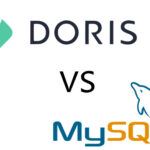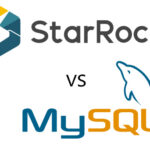This comprehensive Bash script helps database administrators automatically optimize MySQL tables by defragmenting them, creating necessary indexes, and setting up partitions based on column types.
Features:
- Defragmentation: Optimizes tables by reducing fragmentation and reclaiming space.
- Index Creation: Automatically creates indexes for columns without existing indexes to enhance query performance.
- Dynamic Partitioning: Creates partitions based on
Id(if it exists and is of typeINTorBIGINT) or by datetime columns such asCreate_at,Entry_dt,Ent_dt, andCreate_dtto improve data management.
Bash Script for Database Optimization and Partitioning:
#!/bin/bash
# MySQL Configuration
DB_HOST="localhost"
DB_USER="root"
DB_PASSWORD="your_password"
DB_NAME="cms"
# Function to optimize data and create indexes for a table
optimize_table() {
local table_name=$1
echo "Optimizing and creating index for table: $table_name"
# Defragmentation (OPTIMIZE)
mysql -h "$DB_HOST" -u "$DB_USER" -p"$DB_PASSWORD" -D "$DB_NAME" -e "OPTIMIZE TABLE $table_name;"
# Check and create indexes for columns without indexes
columns_without_index=$(mysql -h "$DB_HOST" -u "$DB_USER" -p"$DB_PASSWORD" -D "$DB_NAME" -e "
SELECT column_name
FROM information_schema.columns
WHERE table_schema = '$DB_NAME'
AND table_name = '$table_name'
AND column_key = '';" -B -N)
# Create indexes for columns without indexes
for column in $columns_without_index; do
echo "Creating index for column: $column in table: $table_name"
mysql -h "$DB_HOST" -u "$DB_USER" -p"$DB_PASSWORD" -D "$DB_NAME" -e "ALTER TABLE $table_name ADD INDEX (${column});"
done
}
# Function to check and create partitions for a table
partition_table() {
local table_name=$1
echo "Checking table: $table_name for partitioning."
# Check if the table has an Id column of type INT or BIGINT
id_column=$(mysql -h "$DB_HOST" -u "$DB_USER" -p"$DB_PASSWORD" -D "$DB_NAME" -e "
SELECT COLUMN_NAME
FROM INFORMATION_SCHEMA.COLUMNS
WHERE TABLE_SCHEMA = '$DB_NAME'
AND TABLE_NAME = '$table_name'
AND COLUMN_NAME = 'Id'
AND DATA_TYPE IN ('int', 'bigint');" -B -N)
if [ ! -z "$id_column" ]; then
echo "Partitioning table $table_name based on Id column."
mysql -h "$DB_HOST" -u "$DB_USER" -p"$DB_PASSWORD" -D "$DB_NAME" -e "
ALTER TABLE $table_name
PARTITION BY RANGE ($id_column) (
PARTITION p0 VALUES LESS THAN (100000),
PARTITION p1 VALUES LESS THAN (500000),
PARTITION p2 VALUES LESS THAN (1000000),
PARTITION p3 VALUES LESS THAN MAXVALUE
);"
return
fi
# Check for datetime columns
datetime_column=$(mysql -h "$DB_HOST" -u "$DB_USER" -p"$DB_PASSWORD" -D "$DB_NAME" -e "
SELECT COLUMN_NAME
FROM INFORMATION_SCHEMA.COLUMNS
WHERE TABLE_SCHEMA = '$DB_NAME'
AND TABLE_NAME = '$table_name'
AND COLUMN_NAME IN ('Create_at', 'Entry_dt', 'Ent_dt', 'Create_dt')
AND DATA_TYPE = 'datetime';" -B -N)
if [ ! -z "$datetime_column" ]; then
echo "Partitioning table $table_name based on $datetime_column column."
mysql -h "$DB_HOST" -u "$DB_USER" -p"$DB_PASSWORD" -D "$DB_NAME" -e "
ALTER TABLE $table_name
PARTITION BY RANGE (YEAR($datetime_column)) (
PARTITION p0 VALUES LESS THAN (2022),
PARTITION p1 VALUES LESS THAN (2023),
PARTITION p2 VALUES LESS THAN (2024),
PARTITION p3 VALUES LESS THAN MAXVALUE
);"
return
fi
echo "No suitable columns found for partitioning in table $table_name."
}
# Get list of all tables in the database
tables=$(mysql -h "$DB_HOST" -u "$DB_USER" -p"$DB_PASSWORD" -D "$DB_NAME" -e "SHOW TABLES;" -B -N)
# Optimize and partition all tables
for table in $tables; do
optimize_table "$table"
partition_table "$table"
done
echo "Optimization and partitioning process completed for all tables in database $DB_NAME."Usage Instructions:
- Create a new Bash script file:
nano optimize_and_partition_db.sh- Paste the script into the file and save it.
- Grant execution permissions to the script:
chmod +x optimize_and_partition_db.sh- Run the script with
sudoprivileges:
sudo ./optimize_and_partition_db.shNote:
- Ensure your MySQL supports partitioning and that the columns used for partitioning are valid.
- Adjust the number of partitions and value ranges according to your actual data needs.
- If a table already has partitions, MySQL will return an error. Ensure that tables do not already have partitions before running this script.






Leave a Reply